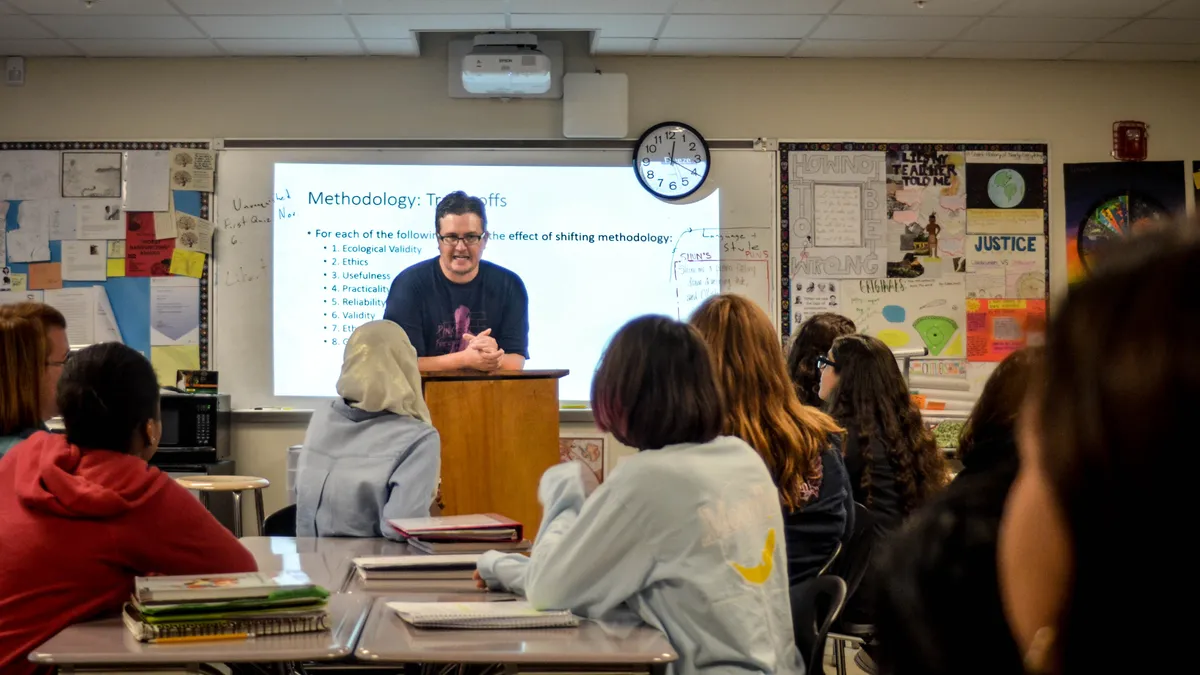Dive Brief:
- As part of their training that precedes the impending school year, teachers in Philadelphia's school district are getting a lesson on student trauma, inclusivity, and language barriers, The Philadelphia Inquirer reports.
- While the training is aimed at ensuring that teachers' own internal biases don't affect how they treat students, the district also is hoping it will improve employee retention rates. New teacher quit rates are high, and the district says the training should help teachers feel more equipped to handle the issues they'll face.
- Few newly graduated teachers have had any training on these issues, according to the Inquirer. And because most of the city's students are affected by some form of trauma, the training should give teachers one of the tools they need to be successful in the classroom.
Dive Insight:
Implicit bias training is taking hold around the country, with perhaps no effort more famous than when Starbucks shuttered more than 8,000 U.S. stores and its corporate office for several hours earlier this year to conduct racial-bias training for its employees in aftermath of the arrest of two black men at a Philadelphia store.
The coffee giant was largely transparent about the process, sharing information about both the curriculum and the training's execution. Still, it faced criticism. More than 20,000 Canadian employees were provided the same training as their U.S. counterparts, but many said it missed the mark there, failing to recognize the different nuances of racism in Canada.
For other employers, the tale carries several lessons. In addition to personalization, timing also is critical: providing new teachers with the information they need before the first day of class, as Philadelphia has done, for example, may not only ready them for challenges, but also arm them with useful tools and strategies to manage individual student needs.
And, as the city notes, learning — from cross-training to career development — can be an effective retention tool, if done correctly. And in an industry with a serious retention problem, there may be no better defense to turnover than ensuring new employees are set up for success.












